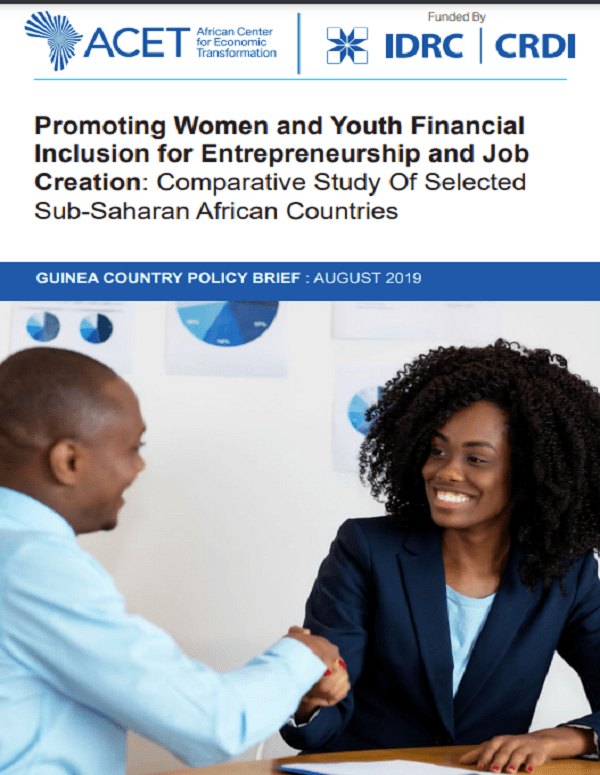Guinea, a country of roughly 12.4 million people with a bank account penetration rate of 15 percent as of 2017, has made modest gains in reducing financial exclusion levels since 2011, despite being hit by the Ebola Virus Disease (EVD). A disproportionate number of the unbanked are women, youth, and rural dwellers and an eight percent account ownership gap between men and women remains. The Global Findex also indicates that only 13.0 percent of the youth have an account at a formal financial institution, compared with 14.6 percent for the entire population.
Emerging research indicates that the failure to close the gender and youth gap in access to finance represents a massive loss of output and potential – especially for the youth: it undermines their lifetime productivity and earnings potential, making it difficult for them to escape poverty.
Key Findings
Access
Stringent identity proof requirements for financial account opening remains a barrier to inclusion for women and youth. A significant number of youths under 18 do not have admissible IDs. Many women, especially in rural areas, find it hard to obtain the right documents because of their illiteracy, the informal nature of their occupations and cultural issues. About 37 percent of all respondents consider identity documents and administrative issues a major barrier to opening bank accounts. Another 32 percent said that distance to access points was a challenge and 30 percent were deterred by transaction costs on their banking platforms.
Usage and Quality
Reliable gender- and age-disaggregated data are lacking for regulators and service providers. There is little segmentation of data by gender, age or location for policy- or decision-making purposes in the public and private sector. None of the respondents could provide statistics on the use of their services by the target groups, except for a few MFIs. Other missing data relate to national mobile phone penetration rates and the business activities of target groups. This weak data culture severely derails the ability of the government and private sector to develop nuanced solutions and policies for financial inclusion.
Welfare
The government is promoting entrepreneurship to fight poverty, which affects 55.2% of the population, mainly young people and women. The government has created several initiatives including Youth Listening, Counselling and Guidance Centers.
Recommendations
The report concludes with a number of policy and strategic recommendations for the regulatory and supply side of the market.
Download Publication – English Download Publication – French Read Publication – English Read Publication – French



